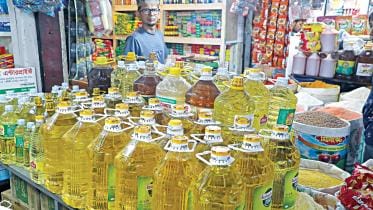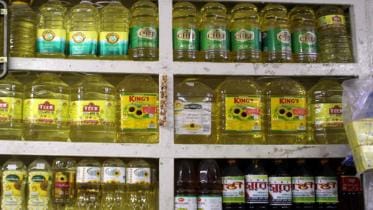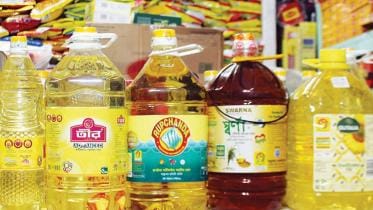Edible oil crisis
No supply shortage of edible oil
The Bangladesh Vegetable Oil Refiners and Vanaspati Manufacturers Association has reassured consumers and traders that there is no supply shortage of bottled edible oil in the local market.
16 February 2025, 18:39 PM
Edible oil crisis is artificial: tariff commission
The Bangladesh Trade and Tariff Commission (BTTC) met with refiners yesterday and concluded that the country does not have any shortage of edible oil at present.
9 February 2025, 19:00 PM
Soybean oil prices rising again
Edible oil prices have been rising over the past week in the local market, as grocers say they are not getting enough supplies from the cooking oil companies.
8 January 2025, 18:00 PM
Indonesia due to restart palm oil export amid uncertainty over rules
Indonesia is due to resume exports of palm oil on Monday after a ban of more than three weeks, but industry traders and companies were awaiting details on accompanying rules to secure domestic supplies of the edible oil to control cooking oil prices.
23 May 2022, 06:58 AM
Edible oil crisis: Alternatives aplenty
Locally produced oilseeds like mustard, corn, sunflower, coconut, and sesame (teel) can be some great alternatives to soybean and palm oil, said Prof Nazma Shaheen of the Institute of Nutrition and Food Science at Dhaka University.
13 May 2022, 18:00 PM
Edible oil crisis: Time to overcome vulnerabilities
When Farid Uddin planted sunflower, sesame and groundnut on his 80-decimal land, he had no idea that prices of edible oil would skyrocket.
13 May 2022, 18:00 PM
Edible oil crisis: Seizures show how hoarding is at play
The seizure of hundreds of thousands of litres of hoarded edible oil in the last one week has proved the claim that unscrupulous traders created the crisis to be able to sell cooking oil at higher prices.
13 May 2022, 02:00 AM









